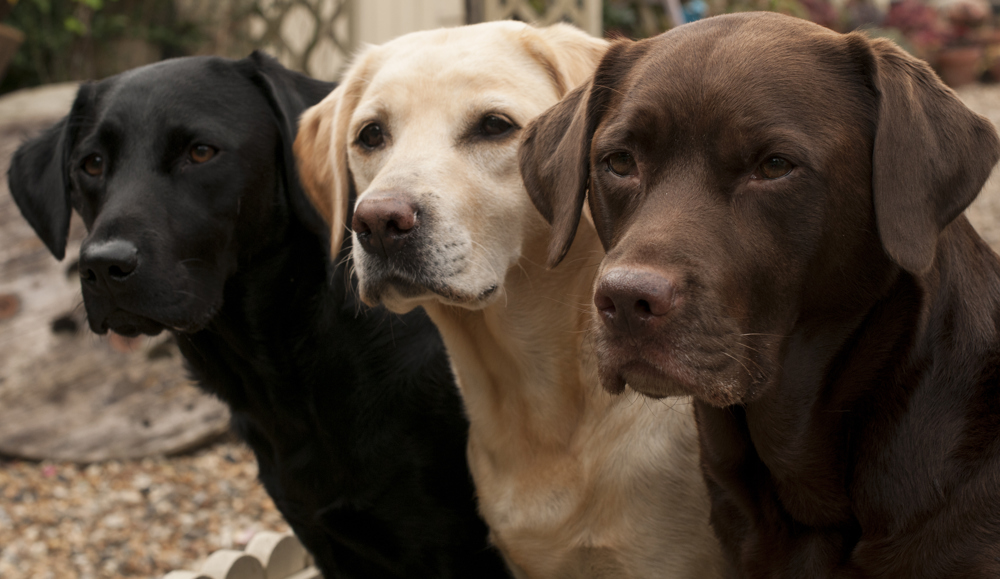
Before buying a puppy it’s useful to know that every breed of pedigree dog has a list of ideal recognised colours described in their breed standard (a description and guide to what a breed looks and acts like).
In doing your research to find a puppy, you may have come across adverts for dogs that have ‘unusual’ colouring. Before deciding to buy one of these ‘rare’ coloured dogs, there are some things you need to know first.
Are they really rare?
No, a breeder may say these colours are rare, but that just means that they are choosing to prioritise breeding dogs for their colour, sometimes at the cost of other attributes such as health or temperament. In some cases, these apparently ‘rare’ colours are the most common! The term ‘rare’ is simply a tactic to make these dogs seem more special than others.
How much should they cost?
Your puppy shouldn’t cost any more than other dogs in the breed. ‘Rare’ coloured dogs can be considered a fad and temporarily fashionable, so just make sure the breeder wants the very best for their puppy and that they really care about the puppy’s future, its health and temperament and not just your money.
The breeder
Puppies should always be bought from a responsible breeder; someone who registers their dogs with The Kennel Club, who does everything they can to make sure that the dogs they breed are happy and healthy, such as Kennel Club Assured Breeders. You need to visit the puppy at home and meet their mum, just as you would with any puppy.
Your puppy’s health and happiness
Your puppy’s mother and father (dam and sire) should be health screened for the same conditions as the other dogs in the breed. Their health and temperament should always be more important than their colour.
Each breeds health screening recommendations can be found in our Breeds A-Z.
Each breeds health screening recommendations can be found in our Breeds A-Z.
Be vigilant and do your homework!
Be sure to do your research before you buy a puppy. To find out more about a breed, or about unusual colours, speak to your local breed club or refer to our Breeds A to Z.
Never buy from anyone you think hasn’t taken every step to make a puppy’s health their priority. If you suspect someone is a puppy ‘farmer’ (someone breeding dogs in poor conditions with no thought for their care or welfare), then please report them to the RSPCA, the police or your local authority who are responsible for licensing breeders.
Never buy from anyone you think hasn’t taken every step to make a puppy’s health their priority. If you suspect someone is a puppy ‘farmer’ (someone breeding dogs in poor conditions with no thought for their care or welfare), then please report them to the RSPCA, the police or your local authority who are responsible for licensing breeders.
Kennel Club registration and colours
When someone registers their puppy with The Kennel Club they must specify their dog’s colour.
- Breed standard colours - Each breed has a list of breed standard colours. These are colours that are acceptable within the breed and confirmed within the breed standard.
- Non-breed standard colours - Dogs may also be registered under a non-breed-standard colour. This means that the colour can occur in the breed, but it doesn’t meet the breed standard criteria.
- Unexpected colours - If a dog isn’t a breed standard or a non-breed-standard colour, then it might indicate that the colour might have come from another type of dog during a cross between two different breeds at some point in their ancestry. This could suggest that if you’re buying a dog with an unexpected colour, then you might not be getting what you think you’re paying for.
The dangers of breeding for fashionable colours
In 2023, The Kennel Club organised a free webinar for owners and breeders to find out more about the dangers of breeding for ‘fashionable’ colours, with the example of colour dilution alopecia. The webinar explores research on the condition to date, advice for breeders to avoid colour dilution alopecia, and how best to support dogs affected with this condition.
